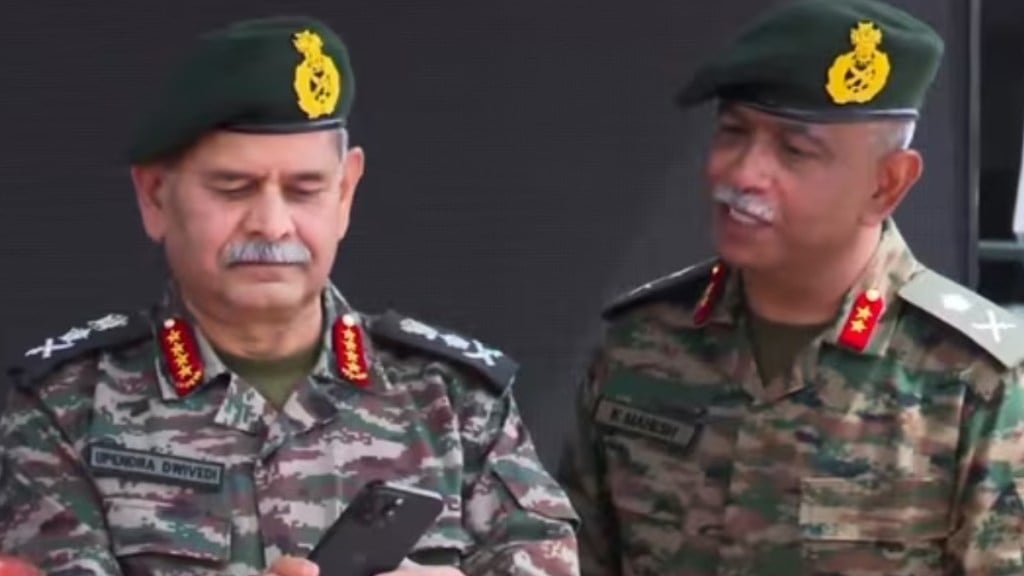The Indian Army has been forming a new “all-arms brigade” named ‘Rudra’ which will bring together various combat units such as infantry, mechanised infantry, armoured units, artillery, special forces and unmanned aerial systems. The announcement was made by Army Chief General Upendra Dwivedi on the occasion of the 26th Kargil Vijay Diwas on Saturday.
Two infantry brigades near the border have already been changed into Rudra units. These will also get specially designed logistics and combat support.
“Today’s Indian Army is not only successfully addressing current challenges but is also rapidly advancing as a transformative, modern, and future-oriented force. Under this, new all-arms brigades named ‘Rudra’ are being formed, and I approved it yesterday. This will have fighting components like infantry, mechanised infantry, armoured units, artillery, special forces, and unmanned aerial systems, supported by tailored logistics and combat support,” General Dwivedi said.
Special forces units named ‘Bhairav’ formed
The Army Chief also said that special forces units called ‘Bhairav’ Light Commando Battalions have been set up to hit back strongly at the enemy on the border.
“Every infantry battalion now includes Drone Platoons, while artillery has enhanced its firepower manifold through ‘Divyastra Batteries’ and Loiter Munition Batteries. Army Air Defence is being equipped with indigenous missile systems. This will increase our force multifold,” he explained.
General Dwivedi said that because of India’s position and the tense environment at the borders, Army Air Defence is being made stronger with Indian-made missile systems.
“We are developing new roads and infrastructure at the border. Also, battle, adventure and heritage tourism are being developed.”
He also spoke about Operation Sindoor, which was launched after the terror attack in Pahalgam on April 22, where 26 civilians were killed.
“On the night of May 6-7, the Indian Army targeted nine high-value terrorist locations in Pakistan and POJK without harming any innocent civilians. This was not just a response; it was a clear message: ‘Those who harbour terrorism will no longer escape,’” he said.
After India’s Operation Sindoor, Pakistani forces carried out drone and missile attacks on India. These were stopped by India’s S-400 air defence system. The conflict ended on May 10 after both sides agreed to a ceasefire.
“Whatever forces are planning to harm the sovereignty, integrity or people of India, they have been given a befitting reply, and will continue to be given,” General Dwivedi warned.
Army Chief pays tribute to Kargil war heroes
On Kargil Vijay Diwas, General Dwivedi paid tribute to the soldiers who fought in the 1999 war and laid a wreath at the Kargil War Memorial in Drass.
“Today, on this auspicious occasion, I express my heartfelt gratitude to the parents, brave women and all the family members of the heroes of the Kargil war. You gave the nation its heroes,” General Dwivedi said.

